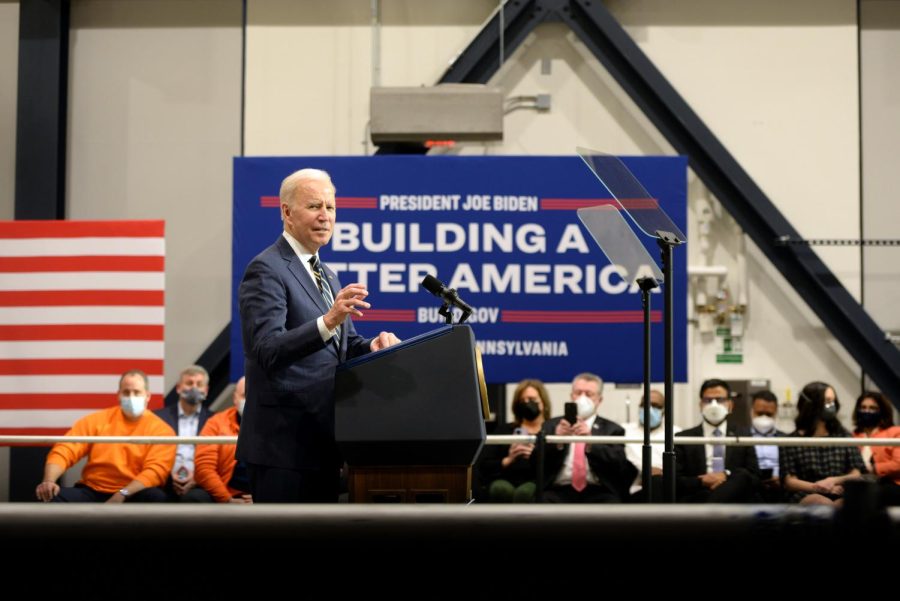You know it’s coming. Most of you never want it to be late, but a few days early can be a nasty surprise.
If you hadn’t guessed it, I’m talking about the “special friends” that greet women in tampon commercials while real women are doubled over in pain. In other words, periods. Hopefully that doesn’t make anyone uncomfortable. It shouldn’t.
Inevitably, Mother Nature has an uncanny ability to strike women at the worst possible time. You’ve got six hours of class today, two midterms this week and you’re not stocked up on nearly enough tampons, Midol or mint chocolate chip ice cream but she’s here — prompt and unflinching, ready to make your life even more unnecessarily complicated than usual.
One day, while lying in my bed, clutching Advil and chamomile tea instead of the U.S. history notes I was supposed to be studying, I searched Google to see if I could miss class because of my period. Ignoring the few reddit and Yahoo Answers threads that came up, there were a few serious articles addressing something called menstrual leave.
Menstrual leave is exactly what it sounds like: the idea of giving premenopausal women an extra day or two of sick leave per month for their periods.
In a society that already suffers from deeply ingrained gender issues, giving women extra time off won’t make the fights to eliminate the wage gap or value working women any easier. But putting period leave on the back burner until we’ve figured out our other societal issues about gender doesn’t do women any favors either. Highlighting the other problems with gender equality, like the wage gap, is not an excuse to discount new ideas, like menstrual leave, that could positively impact gender in the workplace.
Menstrual leave isn’t new — there has been some level of menstrual leave policy in many Asian countries for years. Japan was the first country to offer period leave, starting just after World War II when women first began entering the Japanese labor force in high numbers. According to the Japanese Labor Standards Act of 1947, a menstruating woman may take time off work for physiological leave, though pay is not guaranteed.
There are similar policies in Indonesia, Taiwan, China and South Korea, and the British company Coexist instituted its official period policy in March with the goal of synchronizing work and the body’s natural cycle. Its policy allows women to shuffle their schedules based on individual need.
The pro side of menstruation leave is lengthy. Every woman’s period is different, we all vary on how much and how long we experience pain. According to the American Congress of Obstetricians and Gynecologists, more than half of women experience at least one to two days of pain while menstruating. And 20 percent of American women may experience pain severe enough to interfere with daily activities, according to the American Academy of Family Physicians. One Italian study even found that one in four women have periods requiring “a need for medication and absenteeism from study or social activities.”
Bex Baxter, a director at Coexist, believes the extra days off can improve productivity among women and create a happier and healthy work environment, which makes a lot of sense. Giving people time off to decompress is only fair and helps increase both morale and efficiency, especially when employees are in physical pain otherwise.
And it’s not a secret that, as a society, we are pretty terrible at acknowledging the truth about periods. Although many a tampon ad would like you to believe that women are bright and energetic when they’re menstruating, it doesn’t represent the reality. This false branding of periods leaves anyone who doesn’t have to deal with one pretty clueless about how they work and just how much they can interfere with everyday life.
Workplace and classroom policies that bother to acknowledge, accommodate and embrace periods would inevitably have positive implications for how our culture currently perceives them.
I’ll admit, the idea of extra sick days on account of the red menace is a much preferred alternative to my usual method of sitting in a precarious position during class, my overheated laptop serving as a makeshift heating pad for my uterus.
But even though an idea like this tends to pull at my “smash the patriarchy” heartstrings, the thought of asking my boss or professor for excused period absences has me turning red in the face.
Women in countries where menstrual leave is already commonplace face the same social pressure issues. Many women in South Korea and China have never taken a day off for their periods — despite their right to — out of fear of embarrassment, suspicion and sexual harassment from coworkers.
These Asian countries are decades ahead of the United States in formal policy, but their cultural acceptance of menstruation has yet to catch up. Despite providing menstrual leave, Chinese women are actively encouraged to avoid tampons until after marriage out of fear that potential suitors will doubt their virginity.
The line between medical necessity and an excuse to discriminate against women at work is ultrafine. In the United States, instituting menstrual leave could seriously influence how we view periods in society. But it raises the question about whether women can afford to let their value as employees face further scrutiny in a country where there is already a long-standing wage gap.
Giving women extra paid time off from work does, technically, raise the cost of hiring them by a small margin. Tim Worstall, a columnist at Forbes, ran the numbers. In an average working month, there are between 22 and 23 days of work. If women were given one day of period leave each month, and all of them took it, he theorized that we could expect the wage gap to widen by roughly 5 percent relative to those not being granted the leave.
Still, that’s not necessarily an excuse to ignore pushing for more leave. It’s worth considering whether menstruating women can be just as productive, if not more, than non-menstruating workers when given a fair break.
This is not an argument to highlight the fragility of women or to promote the importance of women as our future babymakers. Nor is it meant to champion those who can work through their periods or condemn those who can’t. It’s merely a request for greater understanding about something half the population goes through on a regular basis. An unavoidable bodily function should not leave women suffering financial or social consequences.
A 2009 study from the American Economic Journal followed a 28-day cycle for women under the age of 45 to see how women take their already allotted sick leave. According to the findings, women are already taking days off for their periods, they’re just doing so with the same amount of sick days as their non-menstruating co-workers. These women receive no fair compensation to account for needing time off more often.
Like most issues facing women, there’s a big double bind here that makes it almost impossible to reach a conclusion able to please all women.
On one hand, granting women menstrual leave is a step toward greater social acceptance of periods and accommodating women in the workforce. The problem can flip easily with this argument, though, painting women as beholden to their uteri and perpetuating stereotypes about female employment value.
In a more ideal world, all feminists would support paid period leave because they wouldn’t have to account for the ways this policy may negatively impact deeply rooted institutional sexism. But granting women the right to paid period leave can affect these social issues in a positive way too, by facilitating education that extends past periods to all women’s issues — both inside and outside the office.
It’s certain there are many issues plaguing the desire for gender equality in America, but to put off pushing for women’s rights in terms of menstrual leave is akin to a metaphorical, and literal, kick in the groin.



